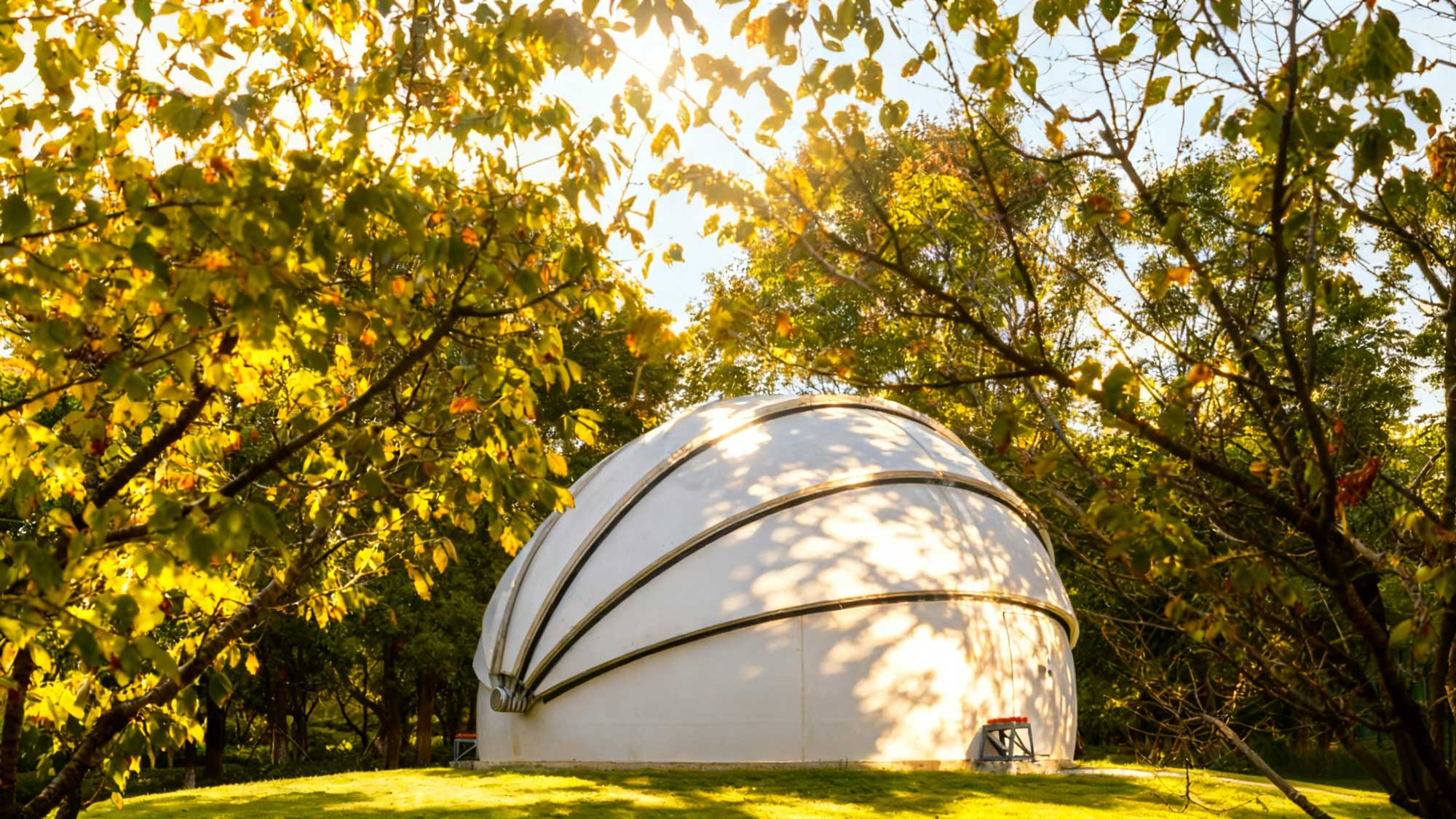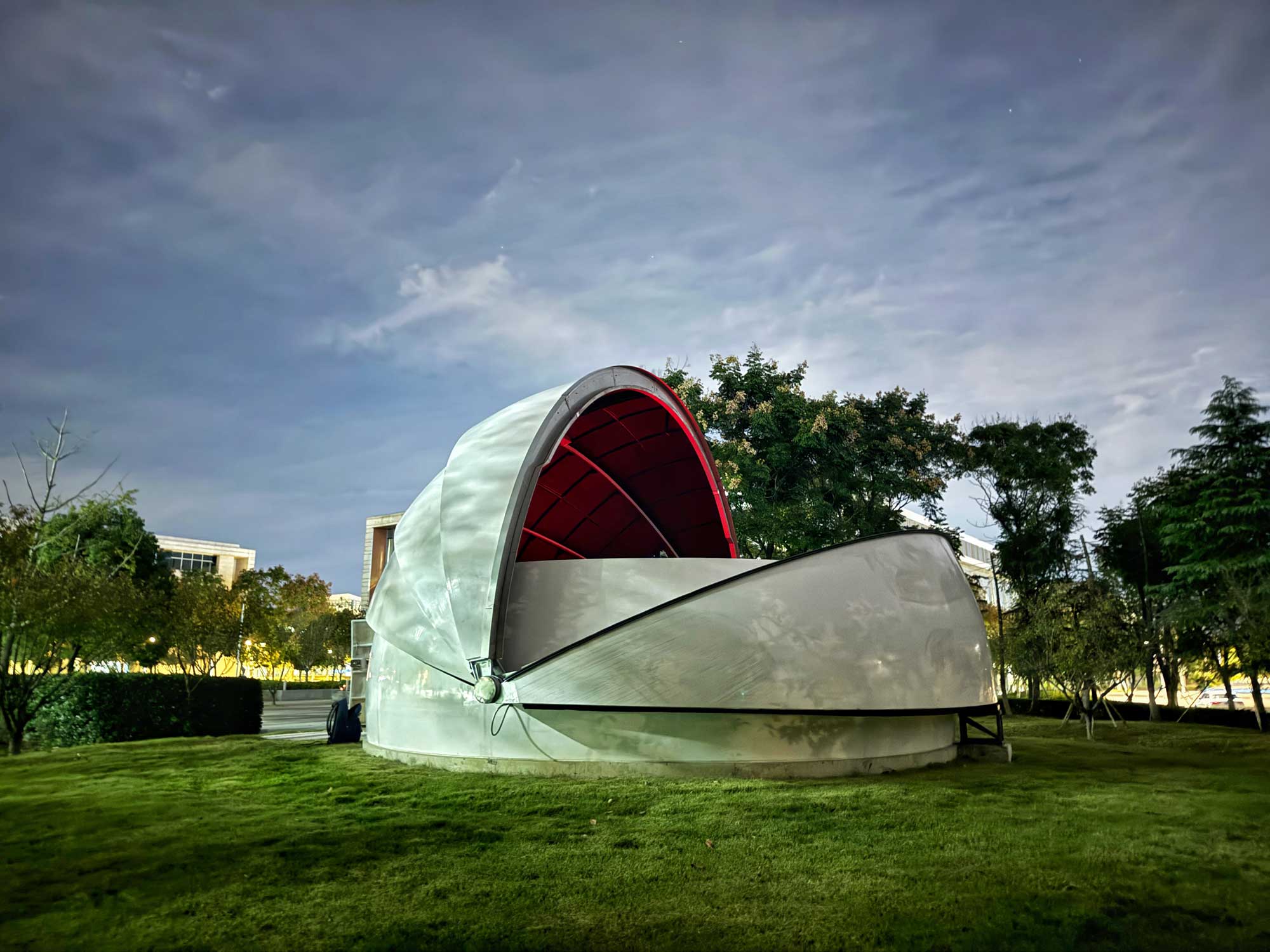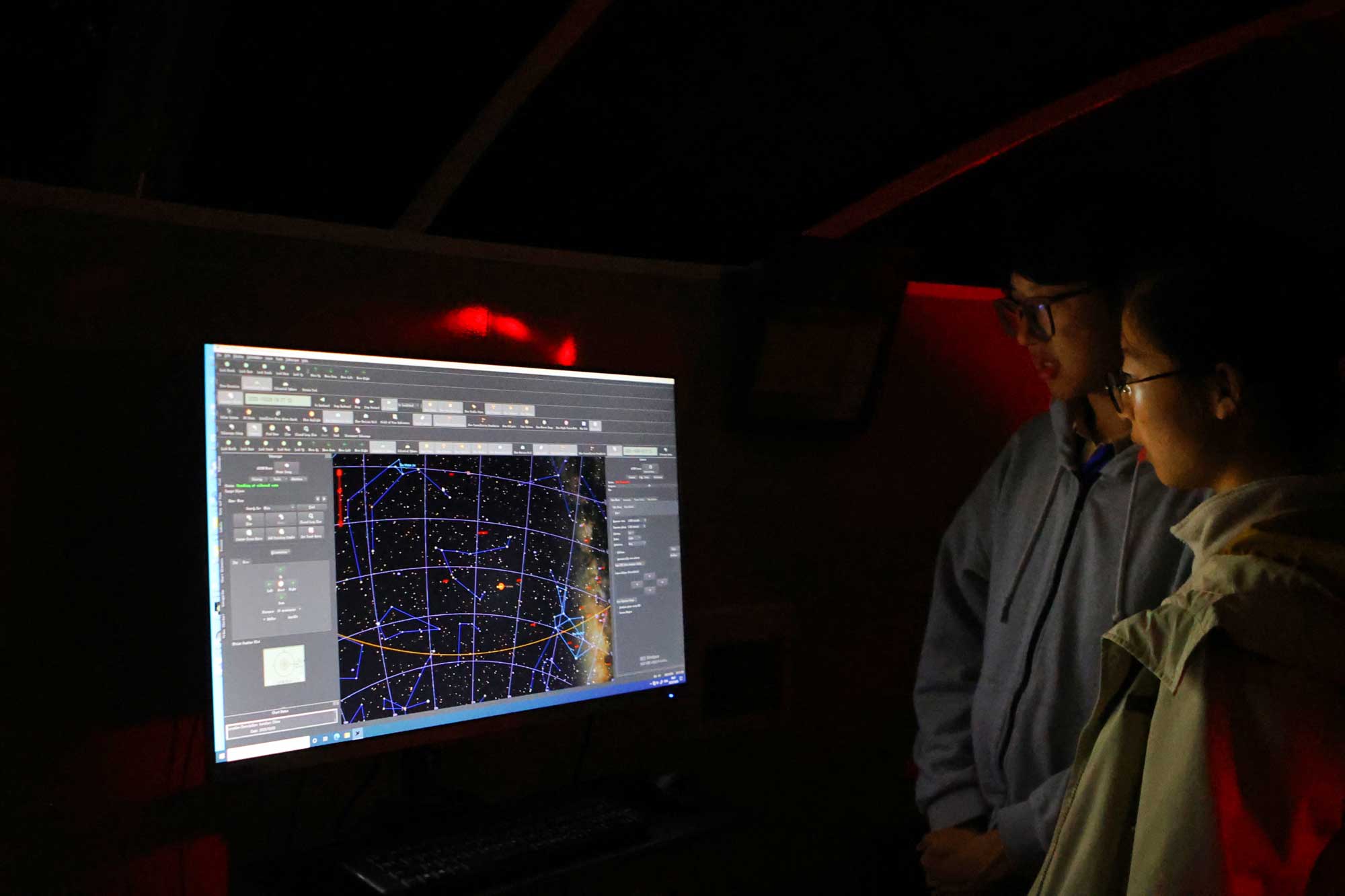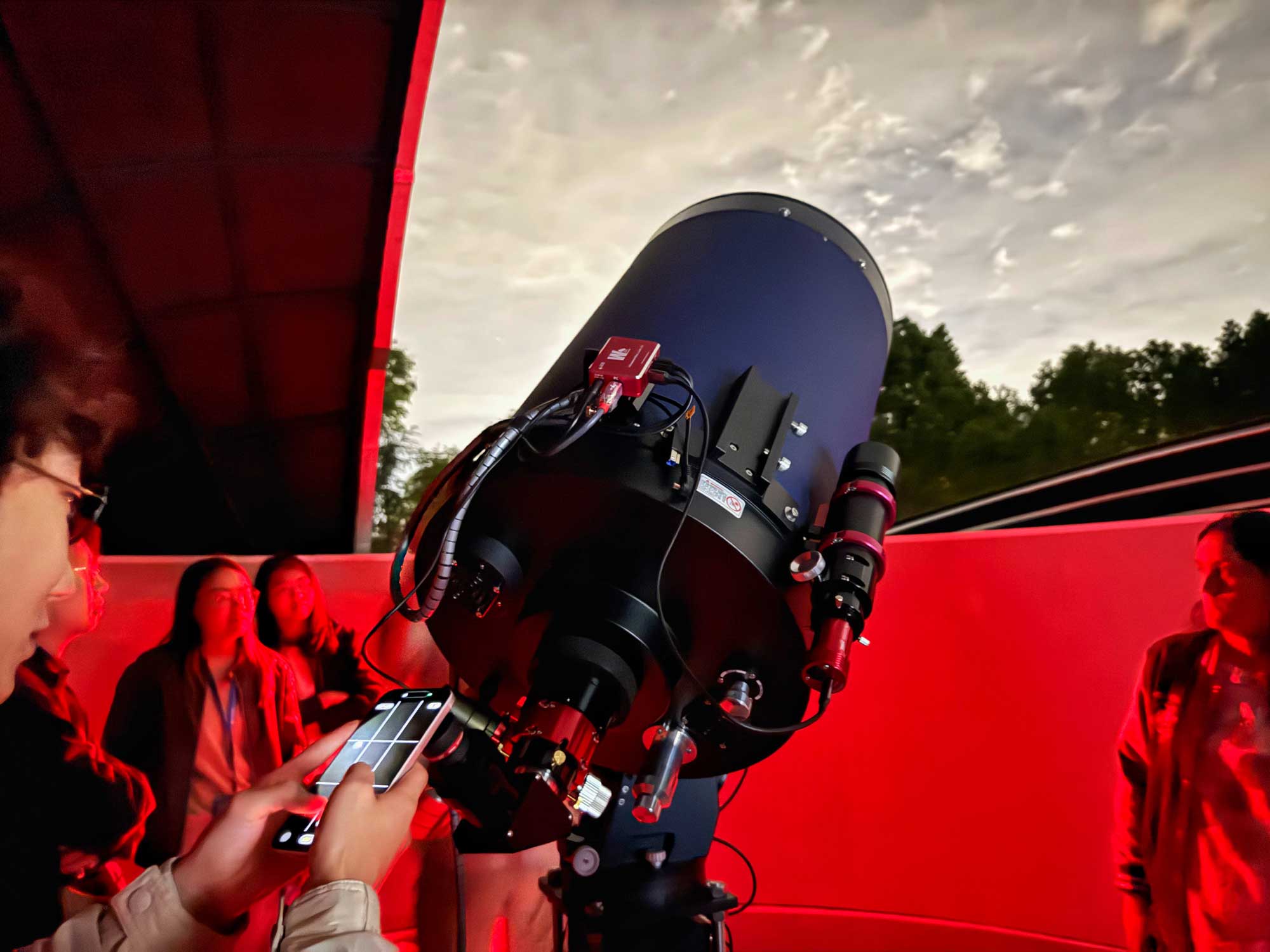Duke Kunshan University has opened its astronomical observatory on Oct. 29, marking a major step forward in the university’s academic and extracurricular development.

The Duke Kunshan Observatory (DKO) will support teaching, student research projects, and astronomy-related campus activities, as well as community outreach in Kunshan.
The opening ceremony featured remarks from Marcus Werner, Associate Professor of Mathematics and Director of Faculty Development, who led the project, and Scott MacEachern, Vice Chancellor for Academic Affairs, both of whom highlighted the observatory’s potential to enhance DKU’s liberal arts education.

In his remarks, Werner traced the observatory’s development and emphasized astronomy’s historic ties to the liberal arts, noting its role in both ancient Chinese mathematics and the Western “seven liberal arts.” While DKU already has strong programs in mathematics and music, he said the new facility fills an important gap in astronomy education and research.
Werner first proposed the idea of a permanent observatory in 2022, and the plan was later approved by the university with support from the Division of Natural and Applied Sciences. Highlighting the DKU Astronomy Club, he also noted that student enthusiasm for astronomy has grown rapidly — a testament to the community’s strong curiosity about the cosmos.
Located on the green lawn at the southwest corner of the Innovation Building, the DKO features a 16-inch f/8 Schmidt-Cassegrain reflector (Meade LX600) housed beneath a five-meter all-sky dome. Werner explained that the design allows quick temperature adjustment and eliminates the need for a rotating dome, improving efficiency and reducing costs. The observatory also includes a high-sensitivity digital camera and related equipment, enabling faculty and students to conduct a range of astronomical observations and research.

MacEachern praised the team behind the project, especially Werner, for their dedication and innovation. He recalled taking an astronomy course as an undergraduate in Canada and noted its relevance to his own field of archaeology, particularly in the study of time measurement.
“Even though my work has focused on archaeology, that early experience with astronomy has benefited me greatly,” he said. “I’m delighted that our students now have the opportunity to explore this new field, both academically and for the joy of discovery.”

The new observatory adds a valuable dimension to DKU’s curriculum, offering students hands-on learning opportunities and expanding options for Signature Work projects that combine research, creativity and real-world application.

